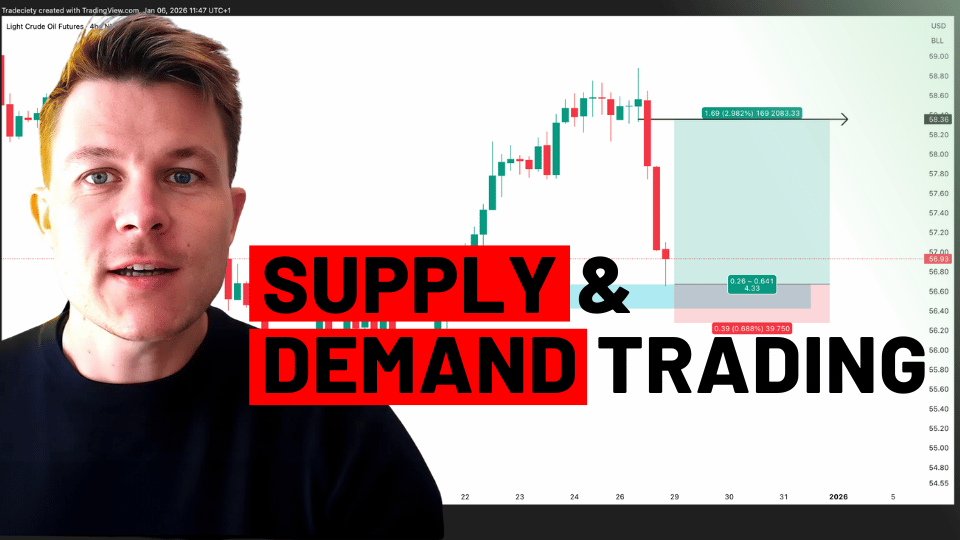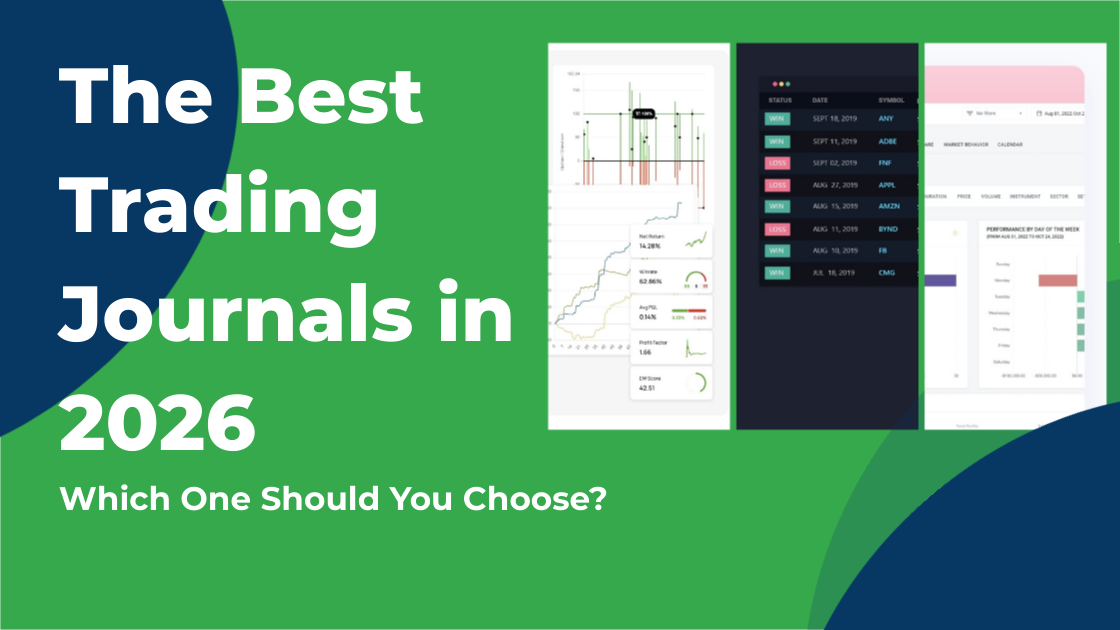Supply and Demand Trading in 2026
We have been trading supply and demand strategies for over ten years, and they have stood the test of time remarkably well. Supply and demand is...
7 min read
Moritz
Jan 25, 2017 7:00:00 PM

“Noooo, not another psychology post, I want MORE ENTRY TECHNIQUES FOR MORE TRADES because my current strategy is not working”..is not what you thought right now! At least I hope so. Yes? Good, good, then there is still hope for you, young Jedi.
Ok, so I am not going to tell you anything groundbreaking here but I will shed some new light on why it makes just so much sense to ask yourself that particular question before every trade and thus, hopefully, can convince you to finally start doing so. For real. Like, seriously. Because I know you aren’t doing it. And even if you are, you are not trying hard enough! Now I still stand by my opinion that most psychological matters can be solved through hard, thorough work and research, BUT…your bottom line will increase a lot, your drawdowns will become smaller, and your life will become much easier if you got your psychological game in check.
The question? Of course. Ask yourself: “Do – I – Love – That – Trade?” Before you click that buy or sell button, ask yourself, “Do – I – Love – That – Trade?” Say it out loud, so you can hear it. Wait for a second, look at your checklist, look at the screen, think about all the triple-A setups you took in the past. Look at that chart of a triple-A setup that you printed out and put right next to your monitor for future reference. And then, ask your gut. “How’s it going down there? You all comfy? Are you going to tell me a second after clicking the buy or sell button that this doesn’t feel right?”. You very likely know the answer. You just don’t want to hear it because you have been sitting there for hours now, and you don’t want to miss the next big move after missing the two previous ones because the setup didn’t look right. So you pull the trigger and BOOM! you did it again. You took a suboptimal setup. And somehow you feel that this is something you didn’t have to do. Price turns against you, and – if you are like me, an at least partially disciplined dimwit – you close out the trade with a small loss and are now even angrier and more impatient than before. If you are not as “disciplined” as me, you will ride the trade out until it hits your stop loss and then tell yourself “I KNEW IT! ARRGH!”.
Yep, yep, been there, done that. We all have. I still go there sometimes, for old times’ sake, you know. f(x)=2^x as our equity curve just becomes boring after a while, we have to add some spice, tap into that self-destructive potential we all have in us.
But ok, joking aside, you know what I mean, right? When you start hating yourself because you knew you didn’t absolutely love that trade and you still went all in, for whatever reason. Most of the time, the fear of missing out is just that reason, by the way. But the fear of missing a move is NEVER a valid reason to be in a trade!
How do we stop that? Well, every time I want to enter a trade, I ask myself said question – that’s how I beat FOMO and a bunch of other psychological pitfalls. However, asking ourselves this question doesn’t have any value or effect on us if we do not know the whole array of values that stands behind that question. The question, to me, is really just a trigger to run through a complete essay in my brain on why it is absolutely OK to pass on that trade if I don’t love it. Here’s the essay in short form.
I like to look at my trading career like at the institution of marriage. Divorce rate is around 50% these days, or higher probably, but let’s assume 50%. There is no reason to think that my marriage will go better than that of other people. Now take that 50% winrate, and see it go down every time you cheat. You cheat on your spouse, winrate goes down, divorce rate goes up. It is the same with your trading career. Cheat on it with trades you don’t love, and you will get a super quick divorce from your bankroll. Or maybe also a slow, painful one, who knows. Point made!
And additionally to all the reasons I gave you above, I think we can all agree that emotional capital is incredibly important in trading because it keeps you going forward with as much momentum as possible in order to improve every day as a trader. Is it easier to learn and improve when you are already break even/slightly winning, or when you are losing? In which state are you more receptive? Trust me, when you start taking only trades that you really love, you WILL get to break even status faster than you think. And then you will plateau, but you are already better than 90% of people out there, and well, that gives you something to work with, right? Think about it. If my personal agenda, which I just told you step by step, doesn’t touch you, then you have to come up with something that makes sense for you personally.
You have to convince yourself that missing moves is ok, and that sitting there for 8 hours and not taking a single trade is ok, and that sitting there for 8 hours and then taking a trade, which then turns into a loser, is also ok. Why? Because you are a professional, and professionals follow their system, day in, day out, no matter the circumstances. When your system gives a signal and you feel it and you love it and everything falls into place, then you pull the trigger without hesitation – well knowing that this might turn into a loser – and you will still be happy because you just executed a perfect entry. Now it’s all about the exit and management, of course. My recommendation? As long as the reason why you got in the trade doesn’t disappear, stay in the trade. Look for reasons to stay in the trade when in the positive, and for reasons to get out when in the negative, and you will do just fine.
Also, many traders – including a few that I respect a lot – say, that the trades that are the hardest to pull the trigger on often are the best, and I never quite understood that quote. When I see a signal and that signal comes with a pattern that looks suspicious but worked out in the past, then I don’t really care whether price looks due for a correction or whatever. I know what I love and I know what my gut is telling me, but maybe that’s just me. As a trend/momentum and sometimes breakout trader, more often than not I will get into trades where price looks like it wants to retrace any second before it shoots up or down just a few moments after my entry. Yes, it was hard to pull the trigger in the beginning. But then I recognized the pattern and started loving it. Now I love it! And I got nothing but love for my triple-A trades.
I hope my elaborations could finally cure you of your FOMO and your insecurity. Asking myself “Do I Love That Trade?” brings up all these emotions, these arguments, and reminds me of all the rational and sane reasons to wait for something better because there will always be something better if I just wait a little bit longer. Ironically, the market will very often not deliver a signal for hours and then deliver a few shitty or mediocre signals trying to trap me before finally delivering a good one. This is a pattern I observed over the years as a daytrader. Not saying there is a conspiracy going on or something like that, but reminding me of that fact also helps a lot in staying out of those first few “shakeouts”. And then again, I have the statistical backup of my historical performance which I also remind myself of very, very often in order to stay on track.
Also, what about all the times when I tried to outsmart the market? That never ended so well for me – neither for you, right? Waiting for the best possible trade out there is simply the most rational thing to do for your equity curve, for your sanity, and to improve the quality of your life overall. Not doing so is the most irrational thing ever, and we don’t want to be irrational, don’t we? So, please, if you don’t love a trade, just don’t take it. And if you, after reading all of this, still can’t make yourself do just that, then hire someone for $10 an hour and let them slap you in the face every time you take a suboptimal trade. Heck, I would even do that for free, I’m all for charity. Just a genuinely nice guy with lots of slaps to give.

We have been trading supply and demand strategies for over ten years, and they have stood the test of time remarkably well. Supply and demand is...

3 min read
Choosing the right trading journal is essential for traders wanting to analyze performance, refine strategies, and improve consistency. In this...

3 min read
“95% of all traders fail” is the most commonly used trading related statistic around the internet. But no research paper exists that proves this...